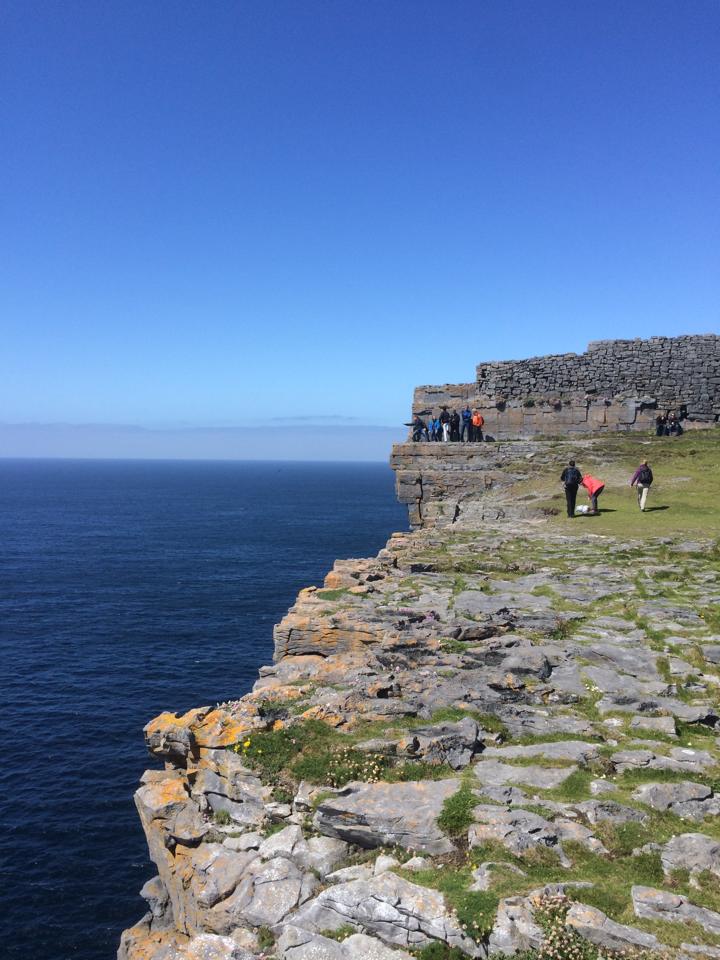
As of a few days ago, I am officially one twentieth (approximately) of the way through my PhD program. I mentioned in a previous post that coming to the University of Washington’s graduate program in neuroscience was one of the best decisions I’ve ever made. I had a fantastic experience during my first quarter – I performed research I truly care about, met a lot of great people, had the opportunity to learn more about myself while adjusting to life in a new city, and did it all with relatively low levels of stress.
Still, at this point, it’s hard to say if going to graduate school really was one of the best decisions I’ve ever made. The truth is that I’ve only just begun, and my interests and goals (like most people’s) will morph and change as time goes on, and likely won’t even be recognizable a few years from now. Graduate school, and PhD programs especially, are extremely long-term commitments that require a singular focus on a very specific topic. As such, the decision to go to graduate school shouldn’t be taken lightly.
Because I know so many people that are either considering or planning to enter a PhD program in the near future, I thought I’d put together a list of a few important questions I asked myself that helped me reach my decision. This list is geared towards those thinking about pursuing education beyond a Bachelor’s, but the questions here are really applicable to evaluating any major life decisions you might be facing.
Are you doing this because “you should”, or because you want to?
The first, and maybe the most obvious question to ask yourself when deciding to pursue a PhD (or any major career or lifestyle decision) is why you actually want to do it. I’ve noticed many people tend to pursue advanced degrees after college because it’s what their peers are doing, they want to postpone getting a “real job”, or they think it’s their only option – in short, because they feel like they “should”.
Do things because you want to, not because you should. Especially if that thing is committing five years of your life to a PhD program. Otherwise, you’re doing a disservice to yourself and the people that are counting on you to produce quality work. In a college environment, pressure from professors to pursue advanced study will probably be high, especially if you’re already performing research. Don’t get sucked into this world if it’s not what you want. I’ll admit that part of what initially led me down this road was momentum and a sense that going to grad school was something I should do. Fortunately I realized this, and it turned out that I had several legitimate reasons why I felt going to grad school was for me. Still, if you don’t think carefully about the reasons for your decision, you may realize it’s not for you after you’ve already begun.
Do you really need that advanced degree to pursue the work you’re interested in?
The Internet is a wealth of information. Sites like Coursera and MIT OpenCourseWare make it possible to obtain a college education from the comfort of your own home. The open source movement is putting scientific discovery in the hands of the lay person and making cutting-edge research articles freely available to the public. And perhaps most interestingly, a disproportionate number of successful tech company CEOs are college dropouts.
The truth is, the information age is changing the way knowledge is created and disseminated. It’s perfectly feasible to identify free online education resources, put your nose to the grind, and bring to life that new app idea or computationally model the latest theories in astrophysics. Check out this site for a great perspective and interesting self-experimentation with what this might look like. Of course, if you’re like me and your line of work involves hazardous chemicals, expensive equipment and living test subjects, this won’t necessarily apply.
Are you independent and self-motivated?
Starting a PhD or embarking on a radical career change will undoubtedly involve a great deal of independent and self-motivated work. Unlike in the undergraduate environment, no one is going to make you come to class or give you regular tests. Science in particular tends to be a bit of a solo endeavor at times, so if you need someone to hold you accountable in order to be productive or if you dislike spending time in your own head, you may want to think twice about grad school.

Are you comfortable living a minimalist lifestyle?
It’s common for people to graduate college and feel like they need to immediately enter the workforce, make a bunch of money and start saving for retirement (which is an absurd idea anyway). If this is your mentality, going to graduate school is definitely not for you. Graduate stipends aren’t very high, particularly for non-STEM fields. You’ll make enough money to survive, but if you can’t handle living modestly then steer clear.
Can you be flexible and open-minded about job prospects after you graduate?
Many people enter grad school with the intention of one day becoming a tenured professor at a university. Unfortunately, there are far fewer tenure-track academic jobs than there are qualified applicants. Contrary to what most people may think, the job market for freshly-minted PhDs is incredibly bleak, especially if you’re entering the life sciences or the humanities. It’s important to keep an open mind about career paths outside of academia after graduation. For example, I’m really interested in science writing and science policy as alternatives or in addition to performing research. Branching Points (created by a former UW Neuroscience graduate student) and The Verstile PhD are great resources for exploring options beyond the ivory tower.
What actually makes you happy?
When I was applying to programs, I had a professor tell me that getting a PhD requires you to abandon everything else in your life and pour all of your time and energy into research. He even told me that if I didn’t become a socially awkward recluse, I’d be doing it wrong.
Not only is this mentality inaccurate, it’s completely toxic. Based on my limited personal experience and conversations with others, one of the single most important things to consider is methods for keeping your life full outside of graduate school. When I came to UW, another professor told me that the students who work 80 hours a week and never leave the lab are the ones who are more likely to burn out and leave their program. Too many students allow their egos to get wrapped up in their science, are unable to cope when things don’t go the way they’re supposed to and nothing else is there to fill the void.
If you’re thinking about grad school, pause and first think about what fulfills you outside of academics. Make sure you can make time while you’re in school to pursue creative endeavors, get plenty of exercise, and travel outside of your comfort zone. Be willing to be honest with yourself about your level of satisfaction with the graduate school experience, and to explore exit strategies if the bad times begin to outweigh the good. Surround yourself with supportive friends and family, and never be willing to sacrifice your own happiness for the sake of adding a few extra letters to the end of your name.
_______________________________________________________________________________________________
If anyone has questions about how I adjusted and am currently adjusting to life as a grad student, or wants to share their own tips, feel free to contact me and I’ll either get back to you directly or address your questions in a future post.
Bonus:
Currently listening to: José González Tiny Desk Concert. “With the Ink of a Ghost” is absolutely haunting, and I can’t get it out of my head.
Currently reading: A Primate’s Memoir: A Neuroscientist’s Unconventional Life Among the Baboons by Robert Sapolsky. A Stanford neuroscientist recounts stories from decades of summers spent studying baboons in the East African bush. Part pop science introduction to primate behavior, part love letter to East Africa, Sapolsky’s writing is unbelievably vivid and poetic, and is currently inspiring me to rethink the kinds of research I’ll want to pursue in the future.

Nice blog Ray!! This is really great.
LikeLike
Loved reading this. Thanks for sharing your experience and insight!
LikeLike